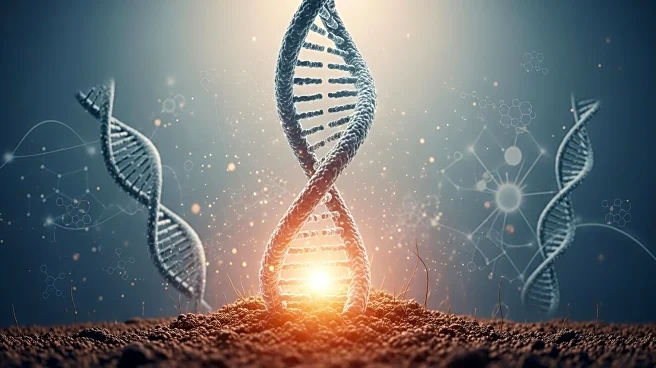What's Happening?
Researchers at Rockefeller University have developed a method to access microbial genomes from soil without the need for lab cultivation. By extracting large DNA fragments directly from soil and using long-read nanopore sequencing, they have uncovered hundreds of complete bacterial genomes and identified two new antibiotic leads. This approach allows for the exploration of the vast genetic diversity of uncultured bacteria, potentially leading to new drug discoveries.
Why It's Important?
This breakthrough in accessing microbial genomes from soil is significant for drug discovery, particularly in the search for new antibiotics. As antibiotic resistance becomes a growing concern, finding new sources of antibiotics is crucial. The ability to mine the genetic diversity of uncultured bacteria opens up new possibilities for discovering bioactive molecules that could lead to the development of novel therapeutics.
What's Next?
The researchers plan to continue exploring the genetic diversity of soil microbes to identify more potential drug leads. They aim to refine their methods and expand their research to other environments, potentially uncovering even more bioactive compounds. Collaborations with pharmaceutical companies may accelerate the development and commercialization of new antibiotics discovered through this approach.
Beyond the Headlines
The discovery of new antibiotics from soil microbes highlights the importance of preserving natural environments, as they may hold the key to future medical breakthroughs. It also raises questions about the sustainable use of natural resources and the need for responsible stewardship of biodiversity.









